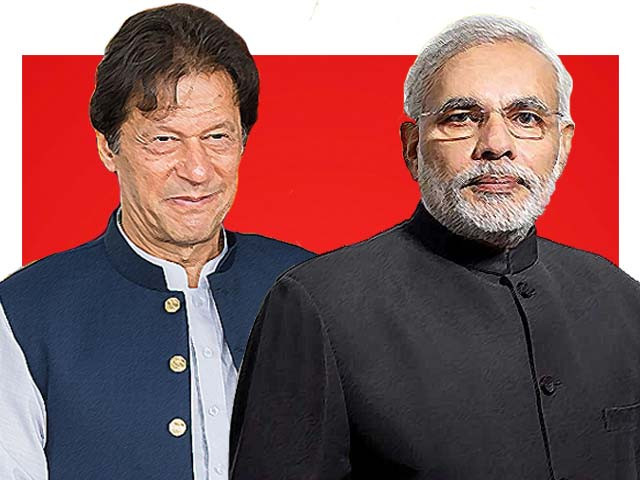Some in Pakistan opine that India’s ouster from a Chabahar-related project in Iran is either a Pakistani foreign policy victory or an embarrassing Indian foreign policy failure. Objective analysis of the situation, however, reveals a different reality. In truth, India played the Chabahar card well – from beginning to end. India signed a trilateral pact with Iran and Afghanistan in May 2016 to develop Chabahar port as centerpiece to a trade corridor across their territories and into Central Asia. Coming a year after the Iran Nuclear Deal (2015-18) granted Tehran relief from US sanctions – at least ostensibly – and was yet intact, the project seemed optimistic.
However, alongside this boost to its ‘Look East’ policy, India also affected an unprecedentedly overt pro-US tilt. The Indo-US Logistics Exchange Memorandum of Agreement (LEMOA) was signed mere months after the Chabahar pact, starting a prolific upward surge in Indo-US defence and strategic ties. At this point, the seeds were planted for a clash between the ‘Look East’ versus ‘Look West’ aspects of Indian foreign policy with the latter poised to eventually win over.
India, however, needed to ensure that the demise of its ‘Look East’ policy remained subtle and gradual. The desire to counter China had already clearly cemented consensus in India for outright alliance with the US, but India could not afford to bid farewell to its Chabahar plans too soon.
This is because obvious Indian nonchalance and indifference toward Chabahar driven by pro-US posturing would trigger consequences favouring enemy Pakistan. Without India offering superficial tribute to Chabahar now and then, the consensus in Tehran – an actor obviously more independent in decision making than Kabul – would swiftly tilt against India and favour ‘punishing’ it by rewarding Pakistan in whatever manner.
This was not ideal, since regionally isolating and pressurising Pakistan from its Iran-Afghanistan front was a prime, if not dominant, objective of the Chabahar project. As noted by the author in an earlier essay on India’s geo-economic endeavours and Pakistan’s response to them, India’s aim to encircle Pakistan was behind the Chabahar corridor’s selection of Afghanistan instead of a shorter, much safer route via Turkmenistan to tap into Central Asia: Afghanistan, after all, borders Pakistan and not Turkmenistan.
Thus, India would toss the occasional financial breadcrumb to the generally-slow progressing Chabahar project. This kept Iran from deciding that the economic dividend of participating in India’s geo-economic plans was no longer worth enabling Indian presence so near Pakistan’s Balochistan province, where India supports separatists against Pakistan.
For India this was a clear win-win situation. While not compromising even an inch on its rapid acceleration toward alliance with Iran’s enemy in the US, it simultaneously kept Iran in place in the Chabahar corridor. Iran, in fact, following the re-imposition of US sanctions against it in late 2018, became a ‘junior partner’ as US waivers to India strategically permitted it to continue developing Chabahar and related projects such as the railway link to the Iran-Afghan border to extend Indian economic influence in Afghanistan – but not to import Iran’s main earning export, i.e oil. Iran was thus gaining little even in economic terms from Chabahar – yet still bore doubts over parting ways with India.
Now, with the inevitable breaking point in Indo-Iran relations having finally arrived in the form of Iran dropping India from major Chabahar corridor-related projects, India can close the chapter on Chabahar with content. Chabahar was merely the remnant of a dying part of Indian foreign policy in the ‘Look East’ approach and yet India utilised it to prevent Iranian backlash against itself strong enough to drive Iran-Pakistan rapprochement.
Additionally, amongst the reasons that the downfall of India’s Chabahar corridor took as long as it did lies a lesson for those in Pakistan currently doing the victory lap. The aforementioned Indian tactic of superficial gestures toward Chabahar to keep Iran from considering alternatives may have been sly, but Pakistan’s lack of initiative and independent foreign policy played a greater role in its success.
Adhering rigidly to an old formula whereby it kept relations with Iran at a distant level in order to appease the US and Saudi Arabia, Pakistan kept relations with Iran restricted to a level where both sides simply repeatedly stressed mutual non-hostility. Pakistan retained its abandonment of the Iran-Pakistan (IP) gas pipeline project, having originally cited fear of US sanctions, even during the Iran Nuclear Deal years under Saudi pressure.
Thus, the opportunity for gaining a nearby and thus cheap, efficient and easily transported source of gas was ceded by Pakistan under foreign pressure. In particular, it gave up an opportunity for a major project running through the restive Balochistan province, where lack of development is a grudge borne by separatists against Islamabad.
Moreover, the reasons or excuses themselves cited by Pakistan for shelving the IP pipeline have been questionable. While the US is undoubtedly rigorous with its unilateral sanctioning of Iran and secondary-sanctions against foreign entities doing business with Iran, Pakistan could have weathered US pressure – and of course the lesser one exerted by the Saudis – to push ahead with a major infrastructure project which would ameliorate serious economic issues for Pakistan, notably its crippling power shortages.
It could do this by bargaining with the US. Leveraging its status and logistical importance to the US as NATO’s transit to Afghanistan, Pakistan could stress that the importance to it of improving its energy supply far outweighed the need to comply with aggressive US policies toward Iran and that it would reconsider its cooperation with NATO in Afghanistan if the US forced it to compromise on its energy security and prosperity.
At this juncture, the US military and NATO would barely find rational a confrontation with Pakistan and the prospect of it shutting, for whatever duration, the NATO route, over the issue of forcing Pakistan to compromise on such basic needs. Even slightly effective emphasis by Pakistan on its conviction to go ahead with the IP pipeline would suffice in getting the US Treasury to make an exception and relent from placing Pakistani entities associated with the project on its sanctions blacklists.
Furthermore, Iran’s neighbours bargaining successfully for exemption from US sanctions for the sake of economic ties with Iran is not unprecedented. In early 2010, Turkmenistan completed a pipeline from its natural gas reserves in Dauletabad to Iran’s Khangiran gas refinery. The project was of top priority to Turkmenistan’s push for reducing disproportionate reliance on exports to Russia for its state earnings. Given the centrality to Turkmenistan’s economy of the project and its help in lessening Russia’s grip over ex-Soviet states, the US did not sanction it.
Similarly, Turkey and Iran completed the Tabriz-Ankara gas pipeline in 2001, five years after the first US Congressional sanctions legislation against Iran in the form of the 1996 Iran Libya Sanctions Act. Here, Turkey’s status as a NATO member state hosting the US’ most crucial Middle East air and military bases – similar to Pakistan’s importance as NATO’s transit to Afghanistan – eventually dissuaded the US from pressurising Turkey with threat of sanctions to compromise on such basic matters as energy security for the sake of punishing Iran.
These cases show that states with interdependencies with the US have room to bargain for relief from sanctions over economic ties with Iran deemed vital to them. Pakistan, however, evidently did not attempt to do so and found capitulation to foreign pressure to renege upon its IP pipeline commitments a more suitable option.
This accentuated the loss of credibility of Pakistan from Tehran’s viewpoint and lead to Tehran willingly looking the other way regarding Indo-US and Indo-Israeli ties and not dropping India from the ever-slow Chabahar project sooner.
India evidently gained much from Chabahar and the demise of its once-highly touted Chabahar plans constitutes no real failure for New Delhi. The Chabahar saga, in fact, shows that Pakistan is becoming a spectator in the affairs of its region, unable to shape outcomes and events in its favour due to a lethargic foreign policy.
The Chinese will certainly be celebrating, but Pakistan cannot afford to become accustomed to settling for responses and ripostes to India’s ambitions which come from other states and which do not, in fact, harm Indian interests all that much either.



COMMENTS
Comments are moderated and generally will be posted if they are on-topic and not abusive.
For more information, please see our Comments FAQ